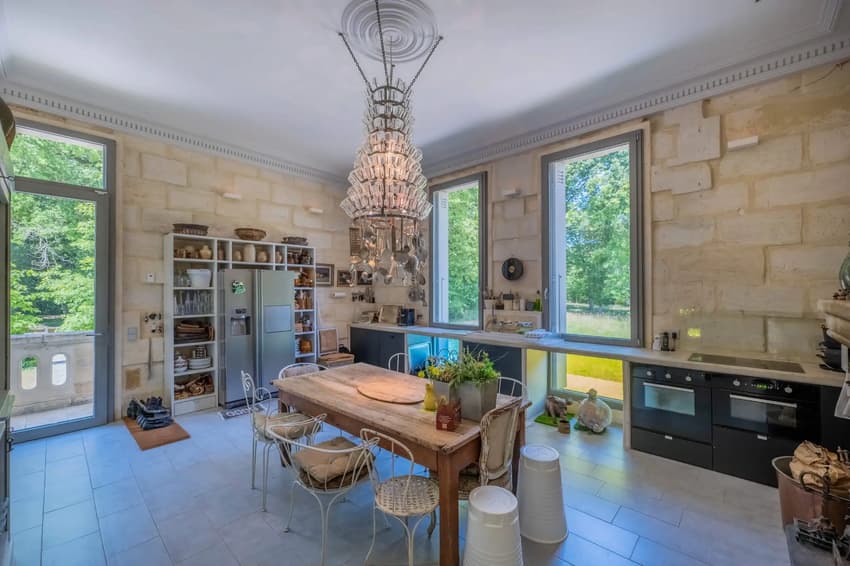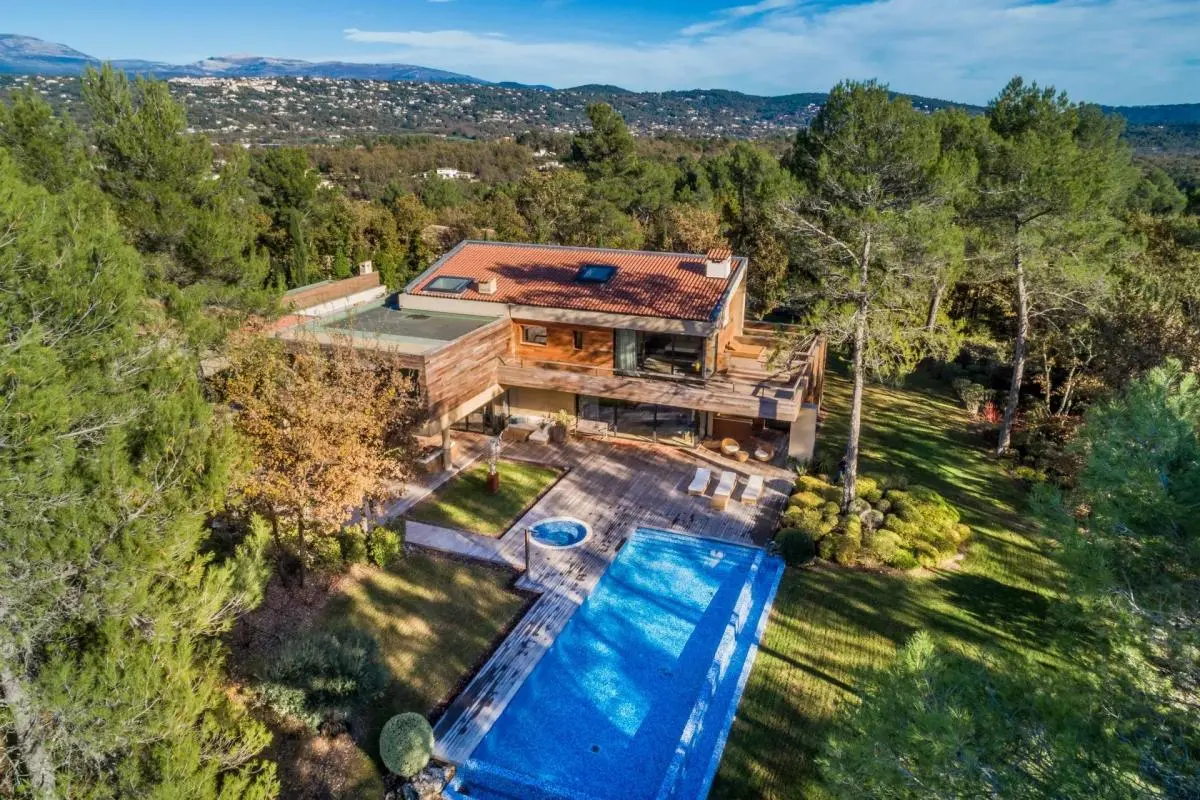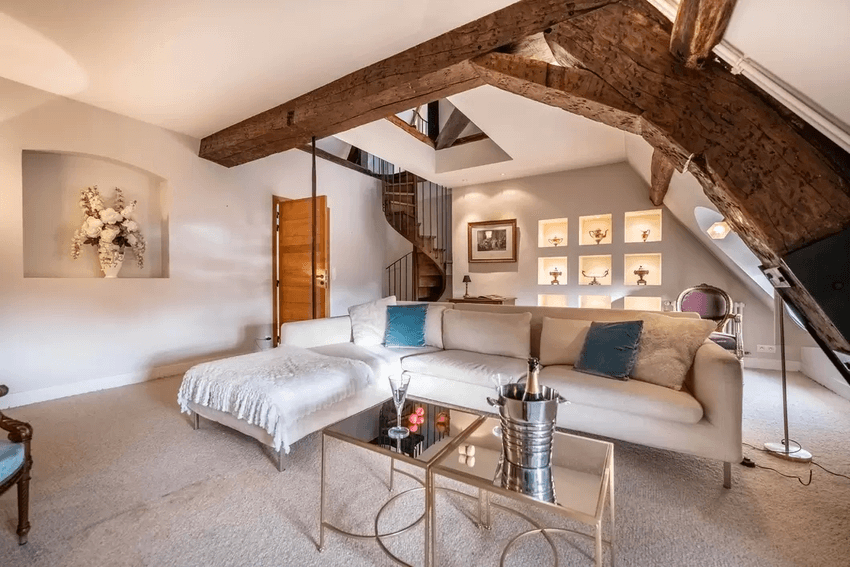US citizens: What to know before buying property in France
Few countries can compete with the diversity of stunning properties found in France. From chic Parisian apartments to ski chalets with dramatic Alpine backdrops, and from villas with views of the Côte d'Azur to historic houses set in magnificent countryside – you’ll find all this (and more) in La Belle France!

It’s no wonder the French property market attracts great attention from US citizens - especially with the current strength of the dollar against the euro. But when buying abroad, there’s lots to consider.
Here are six things to ask yourself as you search for your dream French home.
1. Where will you buy and why?
If you’ve been recruited by a company in France or you’re retiring to an area you’ve fallen in love with, you’ll already have a clear idea of where you’ll live. Anyone looking to work independently, buy a second home, or discover their dream retirement location, however, is spoilt for choice and needs some clear purchasing criteria.
Are you craving fresh air and picturesque views or is your ardent desire to experience French culture and fashion every day? Do you want the adventure of renovating an older property or something with all mod cons or even an off-plan option?
Even if the best access to the best ski slopes is all you care about, you still have many locations in the French Alps to consider! Looking for luxury with a château, a vineyard or an exclusive Paris apartment? Feast your eyes on Leggett Prestige, which showcases more than 500 distinguished properties for sale across France, all hand-picked by experts at leading French real estate agency Leggett International Real Estate.
If you’re looking for a new career, you may also want to know that Leggett International Real Estate is currently recruiting independent sales agents across France.
 An exceptional modern villa for sale in Tourrettes, near Nice. Photo: Leggett International Real Estate
An exceptional modern villa for sale in Tourrettes, near Nice. Photo: Leggett International Real Estate2. What type of visa do you need?
France offers a wide range of visas for non-EU citizens. You may feel confused by the options, so let’s take a closer look at them. For anyone being taken on as an employee, your employer will sponsor your work visa (although you may still have to do the paperwork yourself). If you’re self-employed or starting your own company in France, you can also apply for a work visa with a detailed business plan and proof you can support yourself at first.
What if you’re buying a second-home and want to stay for more than the 90 days out of every 180 allowed with a Schengen short-stay visa? If you’re ready to make France your main residence, you can apply for a long-stay visa equivalent to a residence permit (VLS-TS) lasting up to 12 months - and spend as many days as you like at your French property.
Not ready to take that step? You’ll want a six-month visitor visa (VLS-T), giving you fewer rights but also fewer responsibilities. You can also apply for a spousal visa if you marry a French citizen.
3. Will you be entitled to French healthcare?
To get most types of French visa, you’ll first need to prove you can cover the cost of your own healthcare. You’ll probably need private insurance to cover medical costs (including repatriation) up to a minimum amount, typically around €30,000.
But if you’re moving to France, you’ll be entitled to register for the French public healthcare system after living in the country for just three months.
Once the registration is complete, you’ll get a carte vitale (health insurance card) and the French state will reimburse most of your expenses for prescriptions, treatments and medical appointments. You may then choose to cancel the private insurance you needed to get a visa.
However, most people in France buy top-up health insurance, known as a mutuelle, which generally ensures 100 percent reimbursement of your costs.
4. What will your tax obligations be?
There are two property taxes: the taxe foncière (paid by the owner) and the taxe d’habitation (traditionally paid by the occupier). If you own and live in a French property, you would usually pay both.
However, the taxe d’habitation is now being scrapped for people who are neither high-earners nor second-home owners. Some municipalities are authorised to levy a surcharge for second-home owners. But most chose not to in 2022, so it may be worth investigating this further before settling on your favoured areas.
In terms of tax declarations, you’ll have to complete the new Déclaration d’occupation indicating whether the property is your main residence or second home (this is extra paperwork but not a tax bill!)
 This Paris apartment, currently for sale, overlooks a stunning garden courtyard featured in the Netflix series Emily in Paris. Photo: Leggett International Real Estate
This Paris apartment, currently for sale, overlooks a stunning garden courtyard featured in the Netflix series Emily in Paris. Photo: Leggett International Real EstateIf you plan to rent out your home, the rental income you receive is taxable and you’ll need to learn how to correctly declare it. Last but not least, even if you are resident in France and pay French income tax, as a US citizen you must continue filing annual American tax returns.
5. What will it mean for your pension plans?
Whatever your age, it makes sense to research the implications of moving abroad for your retirement plans. If you’re going to be an employee in France, you’ll be obliged to join a state pension scheme and your employer may well offer you a private pension. But as an American, you may want to consult a cross-border financial expert to properly understand the implications of the latter.
Some French pension products, such as a PEA (Plan Épargne Action), allow you to take cash out within five years of opening. But the Internal Revenue Service (IRS) doesn’t consider this a true pension. Americans living in France who open a PEA therefore face being taxed yearly, warn experts.
US citizens can bring any US-based pension to France but you need to tell US tax authorities that you’ll be paying French income tax on it. If you’re retiring in France, you’ll need to report your US pension on your French tax return. But don’t worry, that doesn’t mean being taxed twice; after reporting your US pension, France will give you a credit equal to the French tax.
6. Do you need a property management service?
If you’re buying a second home, you face additional questions. Will you rent it out when you’re not there to make an income from your investment? If so, will you only accept short-term stays or could paying guests enjoy your prize property for lengthy periods? And if you prefer to leave it unoccupied when you’re in the US (or elsewhere), how will you ensure it’s looked after?
Whatever your answers, you’d be wise to consider a property management service. With Leggett Property Management, you can choose from a range of plans. Whether you just want regular check-ups and someone to cut the grass or you’re looking for full rental management and a bespoke concierge service, you can find a solution to make your life easier.
This content was paid for by an advertiser and produced by The Local's Creative Studio.

Join the conversation in our comments section below. Share your own views and experience and if you have a question or suggestion for our journalists then email us at [email protected].
Please keep comments civil, constructive and on topic – and make sure to read our terms of use before getting involved.
Please log in here to leave a comment.